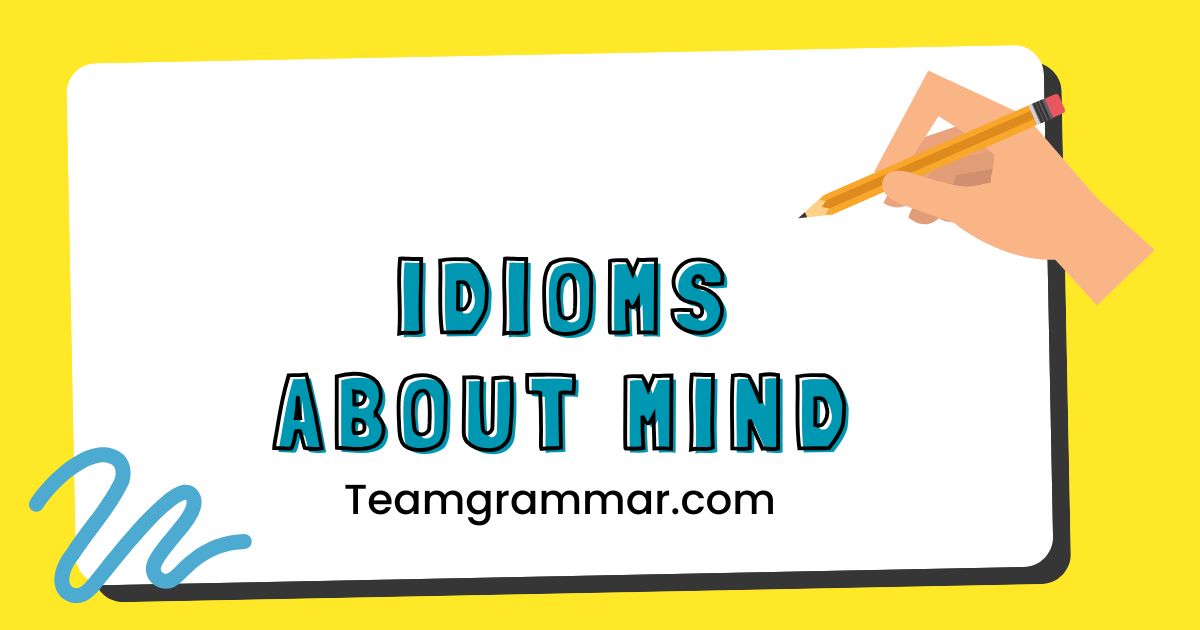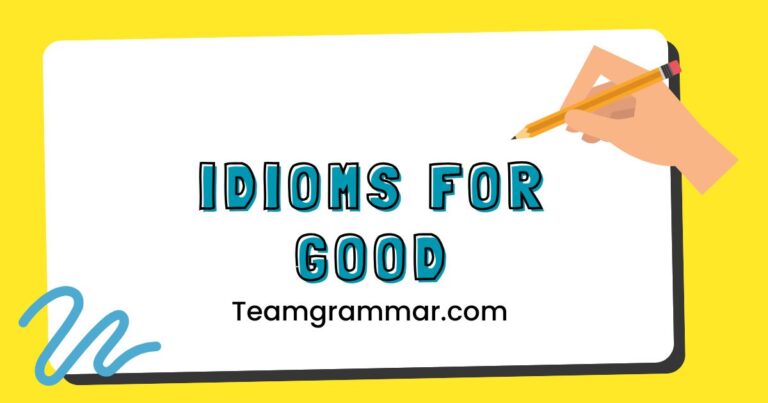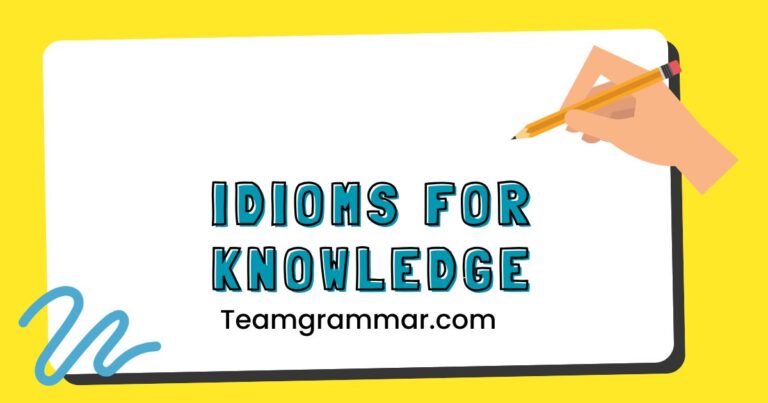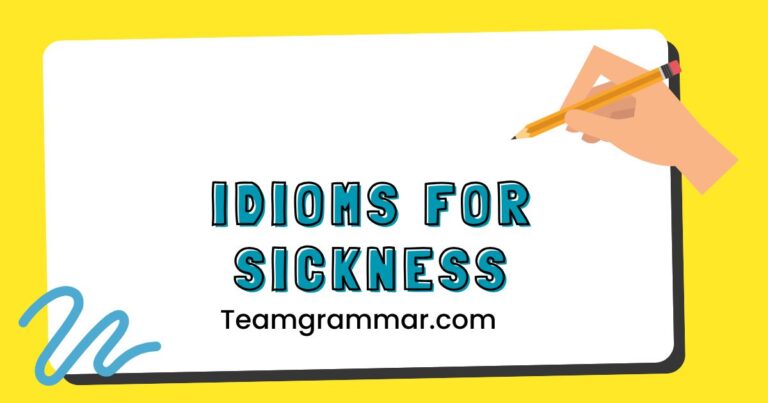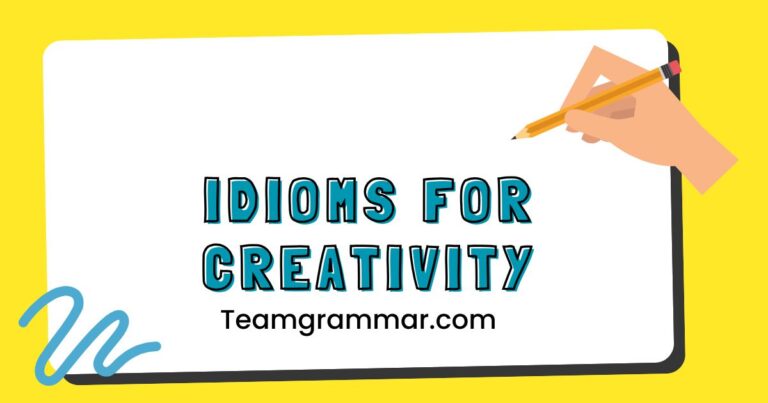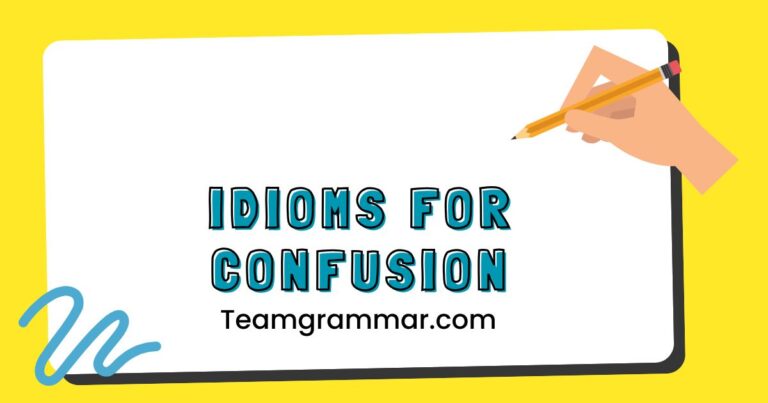36 Mind Games: Mastering Idioms About the Mind in English
Idioms are the spice of the English language, adding color and depth to our conversations and writing. Among the most fascinating are those that revolve around the ‘mind’ – our thoughts, perceptions, and understanding.
Mastering these idioms not only enhances your vocabulary but also provides a deeper insight into how English speakers conceptualize mental processes. This article is designed for English language learners, educators, and anyone keen to enrich their understanding of English idioms.
It offers a comprehensive guide, complete with definitions, examples, and practice exercises, to help you confidently navigate the world of idioms about the mind.
Table of Contents
- Introduction
- Definition of Idioms and Their Relation to the Mind
- Structural Breakdown of Idioms About the Mind
- Types and Categories of Idioms About the Mind
- Examples of Idioms About the Mind
- Usage Rules for Idioms About the Mind
- Common Mistakes When Using Idioms About the Mind
- Practice Exercises
- Advanced Topics: Nuances and Context
- Frequently Asked Questions (FAQ)
- Conclusion
Definition of Idioms and Their Relation to the Mind
Anidiomis a phrase or expression whose meaning cannot be understood from the literal meanings of its individual words. Instead, it has a figurative or symbolic meaning known through common usage.
Idioms are essential for understanding the nuances of a language and are frequently used in both spoken and written English. Idioms related to the mind specifically describe cognitive processes, states of awareness, and intellectual capabilities.
These idioms often reflect cultural perspectives on how the mind works and what it means to think, understand, or remember. They can be used to express complex ideas in a concise and vivid manner.
Understanding idioms about the mind is crucial for interpreting English literature, movies, and everyday conversations.
Classification and Function
Idioms about the mind can be classified based on the cognitive function they describe. For instance, some idioms relate to understanding (e.g., “wrap your head around”), while others describe memory (e.g., “ring a bell”) or mental state (e.g., “out of your mind”).
The function of these idioms is to provide a more colorful and engaging way to express thoughts and ideas. They can add emphasis, humor, or emotional depth to communication.
Using idioms effectively can also make a speaker sound more natural and fluent.
Contexts of Usage
Idioms about the mind are used in various contexts, ranging from informal conversations to formal writing. They are common in literature, journalism, and academic discussions.
However, it’s important to be aware of the audience and purpose when using idioms, as some may be inappropriate in certain settings. For example, “blowing your mind” might be suitable in a casual conversation but not in a formal presentation.
Structural Breakdown of Idioms About the Mind
Understanding the structure of idioms can help learners grasp their meaning and usage more effectively. Some idioms follow specific grammatical patterns, while others are more flexible.
Many idioms about the mind include verbs related to thinking, knowing, or perceiving, combined with nouns or adjectives that create a figurative meaning.
For example, the idiom “to have a mind of your own” consists of the verb “to have,” the noun “mind,” and the possessive pronoun “your.” The meaning is not literal; it signifies independence and the ability to make one’s own decisions. Similarly, “to lose your mind” combines the verb “to lose” with the noun “mind” to express a state of extreme distress or insanity.
Common Grammatical Patterns
Many idioms about the mind follow a subject-verb-object pattern. For instance, “He picked my brain” follows this pattern, where “he” is the subject, “picked” is the verb, and “my brain” is the object.
This pattern helps to convey the action being performed on the mind.
Another common pattern involves the use of prepositions, such as in “It slipped my mind,” where “slipped” is the verb and “my mind” is the object, connected by the preposition “to” (implied). Understanding these patterns can aid in recognizing and interpreting idioms about the mind.
Role of Figurative Language
Figurative language, such as metaphors and similes, plays a crucial role in idioms about the mind. A metaphor is a figure of speech that directly compares two unrelated things, while a simile uses “like” or “as” to make a comparison.
For example, “a mind like a steel trap” is a simile that compares the mind to a steel trap, emphasizing its sharpness and ability to remember things. “Brainstorm” is a metaphor comparing collaborative thinking to a storm, implying a flurry of ideas.
Types and Categories of Idioms About the Mind
Idioms about the mind can be categorized based on the specific aspect of mental activity they describe. These categories include idioms related to understanding, memory, intelligence, mental state, and decision-making.
Idioms Related to Understanding
These idioms describe the process of comprehending or grasping something. They often involve metaphors of grasping, seeing, or clarifying.
Examples include: “wrap your head around,” “get your head around,” “see the light,” “get the picture,” “put two and two together,” “connect the dots,” and “it dawned on me.”
Idioms Related to Memory
These idioms describe the ability to recall or remember something. They often use metaphors of storage, retrieval, or forgetting.
Examples include: “ring a bell,” “jog your memory,” “slip your mind,” “fresh in your mind,” “on the tip of my tongue,” “draw a blank,” and “recollect your thoughts.”
Idioms Related to Intelligence
These idioms describe a person’s intellectual capabilities or level of smartness. They often use metaphors of sharpness, brightness, or quickness.
Examples include: “sharp as a tack,” “quick on the uptake,” “bright spark,” “not the sharpest tool in the shed,” “two heads are better than one,” “brainy,” and “rocket scientist.”
Idioms Related to Mental State
These idioms describe a person’s emotional or psychological condition. They often use metaphors of stability, instability, or disturbance.
Examples include: “out of your mind,” “lose your mind,” “beside yourself,” “on edge,” “in two minds,” “peace of mind,” and “take your mind off things.”
Idioms Related to Decision-Making
These idioms describe the process of making choices or judgments. They often use metaphors of weighing, considering, or deciding.
Examples include: “make up your mind,” “weigh your options,” “think twice,” “jump to conclusions,” “cross that bridge when you come to it,” “give it some thought,” and “sleep on it.”
Examples of Idioms About the Mind
The following tables provide extensive examples of idioms about the mind, categorized by their respective cognitive function. Each example is accompanied by a definition and a sample sentence to illustrate its usage.
Idioms Related to Understanding – Examples
This table illustrates different idioms related to understanding, each with a definition and example sentence to show how they are used in context.
| Idiom | Definition | Example Sentence |
|---|---|---|
| Wrap your head around | To understand something complicated. | I can’t seem to wrap my head around this physics problem. |
| Get your head around | To understand something difficult. | It took me a while to get my head around the new software. |
| See the light | To finally understand something. | After hours of debate, he finally saw the light. |
| Get the picture | To understand the situation. | I think I get the picture; we need to cut costs. |
| Put two and two together | To figure something out from the available information. | She put two and two together and realized he was lying. |
| Connect the dots | To understand how different pieces of information are related. | The detective connected the dots and solved the case. |
| It dawned on me | To suddenly realize something. | It suddenly dawned on me that I had forgotten my keys. |
| Grasp the nettle | To tackle a difficult task with courage. | He decided to grasp the nettle and confront his boss. |
| Get the drift | To understand the general meaning. | I didn’t understand all the details, but I got the drift. |
| Be on the same wavelength | To understand each other easily. | They work well together because they are always on the same wavelength. |
| Click with someone | To understand and connect with someone instantly. | I clicked with her the moment we met. |
| Sink in | To be fully understood or realized. | The news of her promotion took a while to sink in. |
| Figure out | To find a solution or answer. | I need to figure out how to fix this problem. |
| Make sense of | To understand something confusing. | I’m trying to make sense of these instructions. |
| Piece together | To understand something by combining different pieces of information. | The journalist pieced together the story from various sources. |
| Read between the lines | To understand the hidden meaning. | You have to read between the lines to understand what he really meant. |
| Get to the bottom of | To discover the truth about something. | I’m determined to get to the bottom of this mystery. |
| Know inside out | To know something very well. | She knows this city inside out. |
| Have a handle on | To understand and control a situation. | I think I finally have a handle on this project. |
| The penny drops | To finally understand something after a period of confusion. | After several hints, the penny finally dropped. |
| Catch on | To understand or realize something. | He was slow to catch on to the joke. |
| Fathom out | To understand something after much thought. | I can’t fathom out why she did that. |
| Grok | To understand something intuitively. | Once you grok the basics, the rest is easy. |
Idioms Related to Memory – Examples
This table illustrates various idioms related to memory, each with a definition and example sentence demonstrating its use.
| Idiom | Definition | Example Sentence |
|---|---|---|
| Ring a bell | To sound familiar. | That name rings a bell, but I can’t quite place him. |
| Jog your memory | To help someone remember something. | Let me jog your memory with some old photos. |
| Slip your mind | To forget something. | It completely slipped my mind that we had a meeting. |
| Fresh in your mind | To be easily remembered. | The details of the accident are still fresh in my mind. |
| On the tip of my tongue | To be almost able to remember something. | His name is on the tip of my tongue. |
| Draw a blank | To be unable to remember something. | I drew a blank when the teacher asked me the question. |
| Reckon with | To remember and consider something important. | We need to reckon with the possibility of rain. |
| Lost for words | Unable to say anything because of surprise or shock. | I was lost for words when I heard the news. |
| A senior moment | A temporary lapse in memory, especially due to age. | I had a senior moment and forgot where I parked the car. |
| Commit to memory | To memorize something. | I need to commit these dates to memory. |
| Bring to mind | To cause someone to remember something. | That song brings to mind my childhood. |
| In one ear and out the other | To hear something but immediately forget it. | Everything I tell him goes in one ear and out the other. |
| Rack one’s brains | To try very hard to remember something. | I’ve been racking my brains trying to remember his name. |
| Remind me | To cause someone to remember something. | Remind me to buy milk when we go to the store. |
| Bear in mind | To remember and consider something when making a decision. | Bear in mind that this is just a temporary solution. |
| Keep in mind | To remember and consider something. | Keep in mind that the deadline is next week. |
| Call to mind | To remember something. | I can’t call to mind where I left my keys. |
| Etched in one’s memory | Something that is vividly and permanently remembered. | The image of the sunset is etched in my memory. |
| A blast from the past | Something that reminds you of a past event or time. | Seeing that old photo was a blast from the past. |
| Flashback | A sudden, vivid memory of a past event. | The smell of the perfume triggered a flashback. |
| Lingering memory | A memory that persists over time. | I have a lingering memory of our trip to the beach. |
| Fond memory | A pleasant memory. | I have many fond memories of my childhood. |
| Vague memory | A memory that is not clear or detailed. | I have a vague memory of that event. |
Idioms Related to Intelligence – Examples
This table provides examples of idioms relating to intelligence, with definitions and example sentences.
| Idiom | Definition | Example Sentence |
|---|---|---|
| Sharp as a tack | Very intelligent. | She’s as sharp as a tack and always gets the right answer. |
| Quick on the uptake | Able to understand things quickly. | He’s very quick on the uptake and learns new things easily. |
| Bright spark | An intelligent person. | She’s a bright spark and always has great ideas. |
| Not the sharpest tool in the shed | Not very intelligent. | He’s not the sharpest tool in the shed, but he’s a hard worker. |
| Two heads are better than one | It’s better to have more people working on a problem. | Let’s work on this together; two heads are better than one. |
| Brainy | Intelligent. | She’s a brainy student and always gets good grades. |
| Rocket scientist | A very intelligent person. | You don’t have to be a rocket scientist to figure that out. |
| Book smart | Intelligent in academic matters. | He’s book smart, but he lacks common sense. |
| Street smart | Intelligent in practical matters. | She’s street smart and knows how to handle difficult situations. |
| Have your wits about you | To be alert and intelligent in handling a situation. | You need to have your wits about you when dealing with him. |
| Use your noodle | To use your intelligence. | Use your noodle and figure out a solution. |
| A know-it-all | Someone who acts as if they know everything. | He’s such a know-it-all; it’s annoying. |
| Wise owl | A person who is perceived as wise and knowledgeable. | He’s a wise owl and always gives good advice. |
| A walking encyclopedia | Someone who knows a lot about a variety of subjects. | She’s a walking encyclopedia when it comes to history. |
| A whiz | Someone who is very skilled or knowledgeable in a particular area. | He’s a whiz with computers. |
| Have a good head on one’s shoulders | To be intelligent and practical. | She has a good head on her shoulders and makes smart decisions. |
| Not playing with a full deck | Not very intelligent or sane. | I think he’s not playing with a full deck. |
| Slow on the uptake | Slow to understand. | He’s a little slow on the uptake, so you need to explain things clearly. |
| Brain trust | A group of experts who advise on policy. | The president relies on his brain trust for advice. |
| Mind like a steel trap | A very good memory. | He has a mind like a steel trap and remembers everything. |
| Quick-witted | Able to think and respond quickly. | She’s quick-witted and always has a clever response. |
| A genius | A person with exceptional intellectual ability. | Einstein was a genius. |
| Gifted | Having exceptional talent or natural ability. | She’s a gifted musician. |
Usage Rules for Idioms About the Mind
Using idioms correctly requires attention to context, tone, and audience. While idioms can enrich your language, using them inappropriately can lead to confusion or miscommunication.
Here are some key rules to keep in mind:
1. Context is Key:Consider the situation in which you are using the idiom.
Is it a formal or informal setting? Is the idiom appropriate for the topic being discussed?
2. Know Your Audience:Be aware of your audience’s familiarity with English idioms.
Avoid using obscure or regional idioms that may not be widely understood.
3. Tone Matters:Pay attention to the emotional tone of the idiom.
Some idioms are humorous, while others are serious or critical. Use idioms that align with the intended tone of your message.
4. Avoid Overuse:While idioms can add color to your language, overuse can make your speech sound unnatural or forced.
Use idioms sparingly and purposefully.
5. Understand the Meaning:Ensure you have a clear understanding of the idiom’s meaning before using it.
Misusing an idiom can lead to confusion or embarrassment.
Grammatical Agreement
Always ensure that the idiom agrees grammatically with the rest of the sentence. This includes subject-verb agreement, tense consistency, and pronoun agreement.
For example, if the subject is singular, the verb should also be singular.
Correct: “He lost his mind when he heard the news.”
Incorrect: “He lose his mind when he heard the news.”
Word Order
Pay attention to the word order of the idiom. Changing the word order can alter the meaning or make the idiom nonsensical.
For example, “slip your mind” has a specific word order that should not be altered.
Correct: “It slipped my mind.”
Incorrect: “It my mind slipped.”
Literal vs. Figurative Meaning
Remember that idioms have a figurative meaning that is different from the literal meaning of the individual words. Avoid interpreting idioms literally, as this can lead to misinterpretation.
Correct (Figurative): “She’s sharp as a tack.” (She’s very intelligent.)
Incorrect (Literal): “She’s literally sharp like a tack.” (This makes no sense in the intended context.)
Common Mistakes When Using Idioms About the Mind
Even advanced English learners make mistakes when using idioms. Here are some common errors and how to avoid them:
1. Misinterpreting the Meaning:Using an idiom without fully understanding its meaning can lead to miscommunication.
Always double-check the definition before using an idiom.
2. Using the Wrong Idiom:Choosing an idiom that is similar but not quite right can alter the intended meaning.
Pay attention to the specific nuances of each idiom.
3. Overusing Idioms:Using too many idioms in a short space can make your language sound unnatural and forced.
Use idioms sparingly and purposefully.
4. Mixing Idioms:Combining parts of different idioms can create nonsensical expressions.
Stick to the complete and correct form of each idiom.
5. Incorrect Grammar:Failing to ensure that the idiom agrees grammatically with the rest of the sentence can lead to errors.
Pay attention to subject-verb agreement, tense consistency, and pronoun agreement.
Examples of Common Mistakes
This table illustrates common mistakes made when using idioms, providing both incorrect and correct examples to highlight the difference.
| Mistake | Incorrect Example | Correct Example |
|---|---|---|
| Misinterpreting the Meaning | “He was so angry, he was on the roof.” (Intended meaning: He was extremely angry) | “He was so angry, he was out of his mind.” |
| Using the Wrong Idiom | “She’s not the brightest lightbulb in the box.” (Intended meaning: She’s not very intelligent) | “She’s not the sharpest tool in the shed.” |
| Overusing Idioms | “He was feeling under the weather, so he decided to call it a day and hit the hay early.” | “He was feeling unwell, so he decided to go to bed early.” |
| Mixing Idioms | “That’s the way the cookie bounces.” (Mixing “that’s the way the cookie crumbles” and “see how the ball bounces”) | “That’s the way the cookie crumbles.” |
| Incorrect Grammar | “It slip my mind.” | “It slipped my mind.” |
| Literal Interpretation | “He has a steel trap, so he must be a security guard.” | “He has a mind like a steel trap, so he remembers everything.” |
| Wrong Tense | “It will ringed a bell.” | “It rang a bell.” |
| Incorrect Word Order | “Mind my slipped it.” | “It slipped my mind.” |
Practice Exercises
Test your understanding of idioms about the mind with these practice exercises. Choose the correct idiom to complete each sentence.
Exercise 1: Fill in the Blanks
Choose the correct idiom from the list to complete each sentence. Idioms: wrap your head around, ring a bell, slipped my mind, sharp as a tack, out of your mind.
| Question | Answer |
|---|---|
| 1. I can’t seem to _________ this complex math problem. | wrap my head around |
| 2. That name doesn’t _________, I don’t think I’ve met him before. | ring a bell |
| 3. It completely _________ that we had a doctor’s appointment today. | slipped my mind |
| 4. She’s as _________, always acing every test. | sharp as a tack |
| 5. You must be _________ to think that’s a good idea! | out of your mind |
| 6. I need to _________ this new concept before I can explain it to others. | wrap my head around |
| 7. Does the name “Emily Carter” _________? She used to work here. | ring a bell |
| 8. I meant to call you, but it completely _________. | slipped my mind |
| 9. He’s _________ and always comes up with clever solutions. | sharp as a tack |
| 10. Are you _________? That’s the most ridiculous thing I’ve ever heard. | out of your mind |
Exercise 2: Multiple Choice
Choose the best idiom to complete each sentence.
| Question | Options | Answer |
|---|---|---|
| 1. I can’t __________ why he would do such a thing. | (a) see the picture (b) wrap my head (c) fathom out (d) ring a bell | (c) fathom out |
| 2. The details are still __________ , even after all these years. | (a) fresh in my mind (b) on the tip of my tongue (c) out of my mind (d) lost for words | (a) fresh in my mind |
| 3. She’s so clever; she has a __________ . | (a) slow noodle (b) sharp tool (c) quick uptake (d) mind like a steel trap | (d) mind like a steel trap |
| 4. I was __________ when I heard about the accident. | (a) in two minds (b) beside myself (c) on edge (d) sharp as a tack | (b) beside myself |
| 5. You should __________ before making such a big decision. | (a) jump to conclusions (b) think twice (c) see the light (d) lose your mind | (b) think twice |
| 6. It took me a while to __________ the new regulations. | (a) get my head around (b) slip my mind (c) ring a bell (d) draw a blank | (a) get my head around |
| 7. I’m sorry, but your name doesn’t __________ . | (a) jog my memory (b) slip my mind (c) ring a bell (d) draw a blank | (c) ring a bell |
| 8. He’s not the __________ in the shed. | (a) brightest spark (b) sharpest tool (c) quick on the uptake (d) rocket scientist | (b) sharpest tool |
| 9. I’m __________ about whether to accept the job offer. | (a) out of my mind (b) in two minds (c) on edge (d) beside myself | (b) in two minds |
| 10. Let’s __________ before we make a decision. | (a) jump to conclusions (b) weigh our options (c) lose our minds (d) see the light | (b) weigh our options |
Advanced Topics: Nuances and Context
For advanced learners, understanding the subtle nuances and contextual variations of idioms is crucial. Idioms can have different connotations depending on the situation, and some idioms may be more appropriate in certain regions or social groups than others.
It’s also important to recognize how idioms evolve over time and how new idioms emerge in response to cultural changes.
For instance, the idiom “brain dump” has gained popularity in recent years, referring to the act of transferring information from one’s mind to another medium, such as writing or speaking. This idiom reflects the increasing emphasis on information management and productivity in modern society.
Regional Variations
Be aware that some idioms may have regional variations. What is commonly used in one English-speaking country might not be as familiar or understood in another.
For example, an idiom popular in British English might not be widely used or understood in American English, and vice versa.
Example (British English): “Couldn’t be bothered” – Meaning: unwilling to make the effort to do something.
Example (American English): “Couldn’t care less” – Meaning: not interested or concerned about something.
Historical Context
Understanding the historical context of an idiom can provide deeper insight into its meaning and usage. Many idioms have origins in historical events, cultural practices, or literary works.
Knowing the historical roots can enhance your appreciation of the idiom and help you use it more effectively.
For example, the idiom “rule of thumb” is believed to originate from the practice of using one’s thumb as a rough measurement. This historical context helps to understand the idiom’s meaning of a general guideline or approximate method.
Frequently Asked Questions (FAQ)
Here are some frequently asked questions about idioms about the mind:
- What is the difference between an idiom and a proverb?
An idiom is a phrase with a figurative meaning that differs from the literal meaning of its individual words. A proverb, on the other hand, is a short, well-known saying that expresses a general truth or piece of advice. While both idioms and proverbs are figurative, proverbs typically offer wisdom or guidance, while idioms are more about colorful expression.
- How can I improve my understanding of English idioms?
The best way to improve your understanding of English idioms is through exposure and practice. Read widely, listen to native speakers, and pay attention to how idioms are used in context. Keep a notebook of new idioms you encounter and try to use them in your own writing and speaking.
- Are idioms the same in all English-speaking countries?
No, idioms can vary significantly between different English-speaking countries. Some idioms are specific to certain regions or cultures, while others are more widely understood. Be aware of these regional variations and tailor your language accordingly.
- Is it okay to use idioms in formal writing?
It depends on the context and purpose of the writing. In general, idioms are more common in informal writing than in formal writing. However, some idioms may be appropriate in certain formal contexts, such as when writing for a general audience or when trying to add a touch of personality to your writing. Use your judgment and consider the tone and audience of your writing.
- How can I avoid misusing idioms?
To avoid misusing idioms, always double-check the definition and usage before using them. Pay
attention to context, tone, and audience, and ensure that the idiom agrees grammatically with the rest of the sentence. If you’re unsure about an idiom’s meaning or usage, it’s best to avoid using it altogether.
Conclusion
Mastering idioms about the mind is an enriching journey that enhances your understanding of the English language and provides deeper insights into cognitive processes and cultural perspectives. By understanding the definitions, structures, and usage rules of these idioms, you can communicate more effectively and expressively.
Remember to practice regularly, pay attention to context, and be aware of common mistakes. With dedication and effort, you can confidently navigate the world of idioms about the mind and elevate your English language skills to new heights.
Happy learning!

